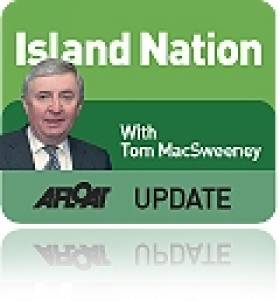Displaying items by tag: Aabye Kierkegaard
Harnessing Our Ocean Wealth: Understand Backwards – Look Forwards
#islandnation – "Life can only be understood backwards, but it must be lived forwards."
It was Søren Aabye Kierkegaard, a 19th century Danish philosopher and theologian, who penned those words. His approach to philosophy was to leave the reader of his words to discover the meaning.
The philosophical approach of Kierkegaard relates in my thoughts to the State attitude towards the maritime sphere. Without seafarers and the sea this island nation could not survive. That fact appears to still elude the understanding of many in Government administration. Looking backwards, I appreciate the launch in mid-year of the Government's plan for the development of the maritime sector when Enda Kenny said:
"As Taoiseach, I want to see us reconnect to the sea in a way that harnesses the ideas, innovation and knowledge of all our people, at home and abroad. I want to see us setting out to secure for ourselves and our children the social, cultural and economic benefits that our marine assets can deliver."
Encouraging words at the announcement of the Government's integrated marine plan for Ireland – "HARNESSING OUR OCEAN WEALTH".
But, as Kierkeggard, said: "life must be lived forwards..." so I wait to discover what the Taoiseach meant by those words and to see how the plan is developed into 2015.
Reflection and resolution are traditional at this time of the year, so in pursuance of the thinking of Kierkegaard I reflect on my first year of broadcasting outside of the State service, an experience which has been interesting and which has underlined to me the importance of developing community, by co-operation, through opinion and action. From starting with just one radio station there are now four broadcasting THIS ISLAND NATION fortnightly, in Cork, Dublin and Clare and with, hopefully, more to join "the family of the sea" in the year ahead and two websites, including Afloat.ie
This edition of THIS ISLAND NATION looks back at some of the community-based stories broadcast in the past year.
Fair sailing into the New Year...





























































